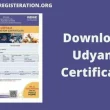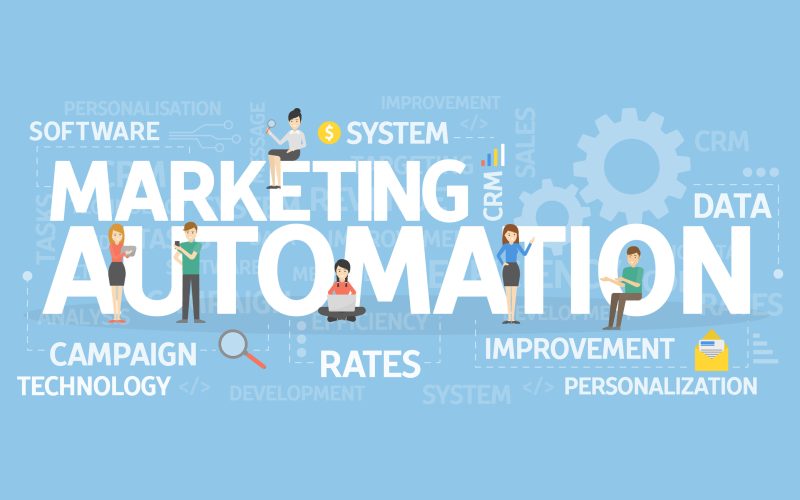In today’s fast-paced digital landscape, businesses are increasingly turning to marketing automation solutions to streamline their marketing efforts, improve efficiency, and enhance customer engagement. However, with a plethora of options available, selecting the right marketing automation solution is crucial for success. Top marketing automation platforms provide essential tools that can transform your marketing strategy, but understanding how to choose and implement the right solution is key. This article explores the factors to consider when selecting a marketing automation platform and how to ensure its successful implementation.
The Importance of Marketing Automation
Marketing automation involves using software to automate repetitive marketing tasks and workflows. This technology can help businesses achieve various objectives, including:
- Increased Efficiency: By automating routine tasks such as email campaigns and social media posting, marketing teams can focus on strategy and creative initiatives.
- Enhanced Customer Engagement: Automated solutions allow for personalized communication with customers, leading to improved engagement rates.
- Data-Driven Insights: Marketing automation platforms provide valuable analytics that help businesses understand customer behaviors and preferences, enabling more effective targeting.
- Lead Nurturing: Automated workflows can nurture leads through the sales funnel, ensuring timely follow-ups and relevant content delivery.
- Improved ROI: By streamlining marketing processes and enhancing targeting, businesses can achieve a higher return on investment from their marketing efforts.
Key Features of Top Marketing Automation Platforms
When evaluating marketing automation solutions, it’s essential to consider the features they offer. Here are some key functionalities to look for in top marketing automation platforms:
1. Email Marketing Automation
Email marketing is one of the most effective channels for reaching customers. Look for platforms that allow you to create automated email campaigns, segment your audience, and personalize messages based on user behavior. Features such as A/B testing and analytics can further enhance your email marketing strategy.
2. Customer Relationship Management (CRM) Integration
A good marketing automation platform should integrate seamlessly with your existing CRM system. This integration allows for better data sharing and customer insights, enabling more effective lead nurturing and personalized marketing efforts.
3. Lead Scoring
Lead scoring helps prioritize leads based on their engagement levels and likelihood to convert. Top marketing automation platforms provide algorithms that assign scores to leads based on interactions with your brand, allowing sales teams to focus on high-potential prospects.
4. Multi-Channel Campaign Management
In today’s multi-channel environment, it’s crucial to manage campaigns across various platforms, including email, social media, and websites. Look for solutions that allow you to create and manage integrated campaigns across multiple channels from a single dashboard.
5. Analytics and Reporting
Data-driven decision-making is vital for optimizing marketing efforts. Choose a platform that offers comprehensive analytics and reporting features, enabling you to track campaign performance and make informed adjustments.
6. User-Friendly Interface
A user-friendly interface is essential for ensuring that your marketing team can utilize the platform effectively. Look for intuitive dashboards, drag-and-drop functionality, and accessible support resources.
Factors to Consider When Choosing a Marketing Automation Solution
Selecting the right marketing automation solution involves careful consideration of several factors:
1. Business Goals and Objectives
Before choosing a platform, define your business goals and marketing objectives. Are you looking to increase lead generation, improve customer engagement, or enhance brand awareness? Your specific goals will guide your selection process and help you identify the features most relevant to your needs.
2. Budget Constraints
Marketing automation solutions vary in cost, so it’s crucial to establish a budget. Consider both upfront costs and long-term expenses, such as subscription fees and potential add-ons. While it’s tempting to choose the cheapest option, investing in a high-quality platform can yield better results in the long run.
3. Scalability
As your business grows, your marketing needs may change. Choose a platform that can scale with your business, offering additional features and capabilities as needed. This flexibility ensures that you won’t outgrow your solution too quickly.
4. Integration Capabilities
Ensure that the marketing automation platform can integrate with other tools and systems you currently use, such as your CRM, eCommerce platform, and analytics tools. Seamless integration enhances data flow and improves overall marketing efficiency.
5. Customer Support and Training
Consider the level of customer support and training provided by the platform. A reliable support team can help you troubleshoot issues and optimize your use of the software. Look for platforms that offer comprehensive training resources, including tutorials, webinars, and documentation.
Implementing Your Marketing Automation Solution
Once you’ve selected the right marketing automation platform, the next step is to implement it effectively. Here are some best practices for a successful implementation:
1. Develop a Clear Strategy
Before diving into implementation, develop a clear marketing automation strategy. Outline your goals, target audience, and key performance indicators (KPIs). This strategy will serve as a roadmap for your marketing efforts and help you measure success.
2. Train Your Team
Ensure that your marketing team is adequately trained on how to use the new platform. Provide training sessions and resources to help them familiarize themselves with the features and functionalities. A well-trained team will be more confident and effective in utilizing the platform.
3. Start with a Pilot Program
Consider starting with a pilot program to test the platform’s capabilities before fully rolling it out. This approach allows you to identify any challenges and make necessary adjustments without disrupting your entire marketing strategy.
4. Monitor and Optimize
Once the platform is operational, continuously monitor performance and gather feedback from your team. Use the analytics and reporting features to track key metrics and make data-driven adjustments to your campaigns. Regular optimization will ensure that you are getting the most out of your marketing automation solution.
5. Stay Updated on Features
Top marketing automation platforms frequently release new features and updates. Stay informed about these changes and consider how they can benefit your marketing efforts. Regularly explore the platform to leverage any new tools that can enhance your strategy.
Conclusion
In a world where efficiency and personalization are paramount, selecting the right marketing automation solution is essential for ensuring success. Top marketing automation platforms provide the tools needed to streamline your marketing efforts and enhance customer engagement. By considering key features, evaluating your business goals, and implementing best practices, you can make informed decisions that lead to successful marketing automation and ultimately drive growth for your business.












